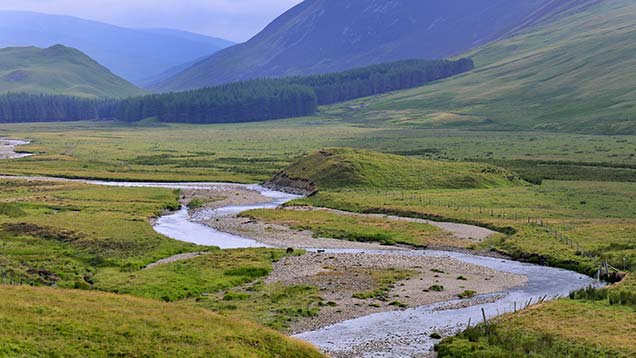Scottish land reform puts sporting estates in the frame
 © Rex
© Rex Radical land reform proposals, which include the removal of tax breaks for sporting estates, are at the forefront of the Scottish government’s legislative agenda for 2015.
A wide-ranging package of reform measures have been announced by Scotland’s first minister Nicola Sturgeon that would give the Scottish government powers to intervene where a landowner acts as a barrier to development and to improve the transparency and accountability of land ownership.
There are plans to establish a Scottish land reform commission and future sporting rates paid by estates will be used to pay for an annual £7m increase in the fund that supports community land ownership.
Ms Sturgeon has also proposed a Succession Bill that will clarify laws and remove the distinction between movable and immovable property to give children, spouses and civil partners legal rights over both forms of property.
More details on the Scottish government’s Programme for Government in 2015 are expected next week but the initial proposals brought mixed reactions.
NFU Scotland (NFUS) president Nigel Miller said a fresh look at land reform was an important step towards meeting the aspirations of communities all over Scotland.
But he emphasised that farmers were a central pillar of rural communities and needed to be embedded in the development of land reform matters.
He added that NFUS had reservations about the proposed Succession Bill.
“We have some concerns about the potential unintended consequences of the proposed Succession Bill and the possibility that this may lead to the break up of family farms because of the changes to inheritance rights. We look forward to discussing with the Scottish government our concerns and looking for appropriate safeguards.”
The landowners organisation, Scottish Lands and Estates (SLE), claimed that sporting estates were being singled out in a negative light by government.
SLE chairman Lord David Johnstone claimed there was ample evidence that private landowners played an active role in rural development and were willing partners in making rural Scotland a better place.
Lord Johnstone added that the announcement that business rates exemption was to be scrapped for sporting estates did not take into account the current voluntary payments made for river and deer management.
“The perception that sporting estates do not pay their dues is not accurate. Estate businesses, whose activities generally extend beyond sporting, pay business rates and other taxes where they are due to support sectors such as construction,” he said.
